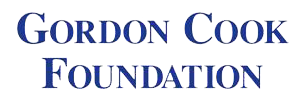Case studies
Self-Assessments
Setting the scene
When we first started our work on the Dignity in School project it was difficult to know where to start. Our remit was to support the development of children’s rights-based practice in our two settings, using a whole school approach. This felt like a daunting task as children’s rights underpin every aspect of teaching and learning.
We realised that we needed a tool that could support us to identify areas of great practice already underway in our schools as well as to highlight those areas that may need a little bit more support. In this way we could target our support in the places where it was needed most.
Process
We developed two self-assessment tools, one to be used with adults in school and one to be used with children. The aims of these tools were to understand children’s and adults’ experiences of their school and identify themes that we might want to explore further with our work.
We have created a downloadable resource containing these tools and guidance on how to use them, you can access the resource here.
The self-assessment tools comprise of a series of statements to which respondents can answer on a scale from strongly agree to strongly disagree. These statements cover a range of different experiences in school such as worries, relationships and learning. We wanted to imagine a school where the UNCRC was fully incorporated into all aspects of school life and break down what that would mean for children and adults in that setting.
We provided the adult self-assessment tool to every adult in school, including teachers and PSAs, office staff, canteen staff and janitorial staff. We believe that for children’s rights and human dignity to be fully realised, all adults in school need an understanding of children’s rights and a willingness to engage with them. By providing every adult with a form and asking their opinion, our aim was to give them ownership over the work taking place in school and show them that they had a role in it. Adults were invited to fill in the assessment tool anonymously, in their own time. We wanted to encourage both reflection and honesty.
Support for children’s participation and engagement with the tool saw us initially work with small groups or in pairs with every child in P5, P6 and P7.We helped children to understand and use the agree/disagree scale. Then, we went through each statement in turn and recorded their thoughts and reflections as we worked though their children’s version of the self-assessment tool.
What resulted was a huge amount on information, in total we had almost 250 child responses and forms back from over 90% of adults in both schools. We were then able to collate these responses to provide us with the top five statements, those to be celebrated, and the lowest five statements which can be viewed as areas where children and adults can work together to enhance human dignity and build on a positive experience of school.
Working with our two schools, we set up steering groups to support the work, both during our programme and beyond. The first job of the steering group was to look at the information from the self-assessments and decide which areas they wanted to make a priority in the year ahead.
Impact
Results from both adults and children were incredibly positive. The top results for children showed that they understood the importance of education, believed that all human beings should be treated with respect and had great friendships. For adults in both schools there was a strong emphasis on listening to children and valuing their opinions as well as supporting children to respect each other.
‘If you respect someone, they will respect you back.’
‘People are nice to people in this school.’
‘We love school because we get to see each other every day’
At the support end of the scale the results in both schools were almost identical. Children felt that adults in school shout, they were worried about their learning, and they felt that they could not always see the difference their ideas made in school. These areas of support were hard to read and caused an emotional response in both the schools we were working in.
In both our schools, adult felt they really did listen and support learner voice. Both schools have also focused on wellbeing throughout the pandemic. However, genuine listening can sometimes be challenging, and all our adults have stepped up to the challenge to continue to be led by children’s perspectives and commit to good work to make their schools even more committed to human dignity and rights-based practice.
‘We all have ideas and they’re different and we can bring them together and make it better.’
What next?
The self-assessments from adults and children made our direction and priority in each school very clear. In Stoneywood we decided we would focus on child voice and wellbeing and in St. John’s we would focus on positive relationships. As we explore these areas in each school, we will be producing resources, case studies and blog posts to demonstrate good practice and support other schools to build their own rights-based practice.
The self-assessment tool was incredibly valuable in providing each school with insight into the views and experiences of their children and staff. They enabled each school to prioritise their time and energy on an area that the children had identified as being important to them. By listening and responding to the children’s feedback both schools have demonstrated their commitment to fully embedding children’s rights in their schools.
We would recommend trying it in your school as well. It can be with whole year groups as we did, or with a smaller selection of children and adults. The results might surprise you, but they will definitely provide you with insight and guidance on how to build your rights-based practice.


